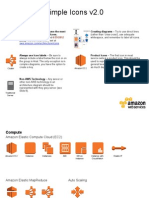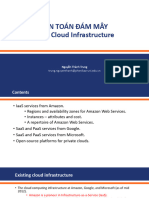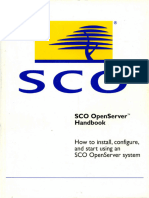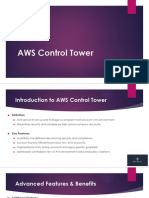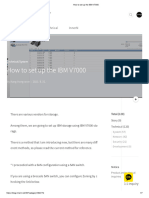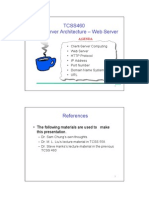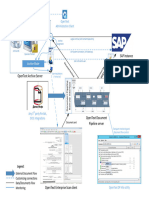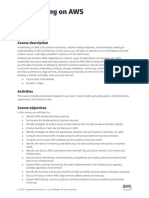0% found this document useful (0 votes)
288 views5 pagesAWS Cloud Concepts Overview
The document discusses several common concepts encountered when working with Amazon Web Services (AWS), including S3 for scalable cloud storage, EC2 for virtual cloud servers, RDS for managed relational databases, Route53 for scalable DNS, VPC for isolated cloud resources, CloudFront for content delivery, DynamoDB for no-SQL databases, and CloudWatch for monitoring resources and applications. It also discusses elastic IP for associating public IPs with EC2 instances, auto scaling groups for adjusting instance pools based on rules, and load balancers for balancing requests across multiple instances. Availability zones and various storage options are also summarized.
Uploaded by
amit_post2000Copyright
© © All Rights Reserved
We take content rights seriously. If you suspect this is your content, claim it here.
Available Formats
Download as PDF, TXT or read online on Scribd
0% found this document useful (0 votes)
288 views5 pagesAWS Cloud Concepts Overview
The document discusses several common concepts encountered when working with Amazon Web Services (AWS), including S3 for scalable cloud storage, EC2 for virtual cloud servers, RDS for managed relational databases, Route53 for scalable DNS, VPC for isolated cloud resources, CloudFront for content delivery, DynamoDB for no-SQL databases, and CloudWatch for monitoring resources and applications. It also discusses elastic IP for associating public IPs with EC2 instances, auto scaling groups for adjusting instance pools based on rules, and load balancers for balancing requests across multiple instances. Availability zones and various storage options are also summarized.
Uploaded by
amit_post2000Copyright
© © All Rights Reserved
We take content rights seriously. If you suspect this is your content, claim it here.
Available Formats
Download as PDF, TXT or read online on Scribd
/ 5

























